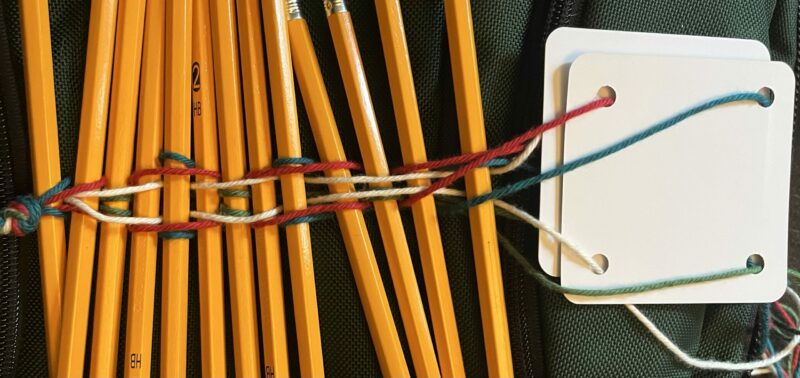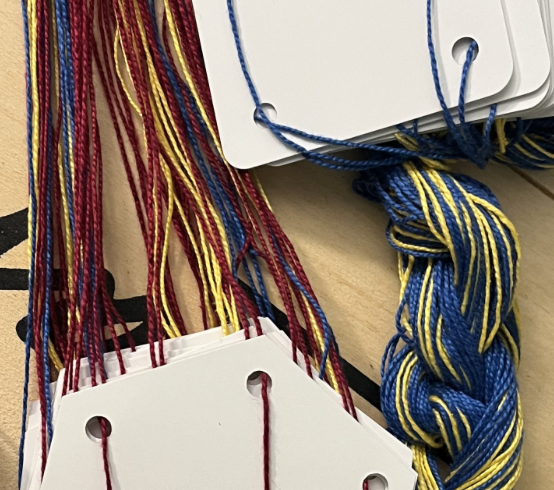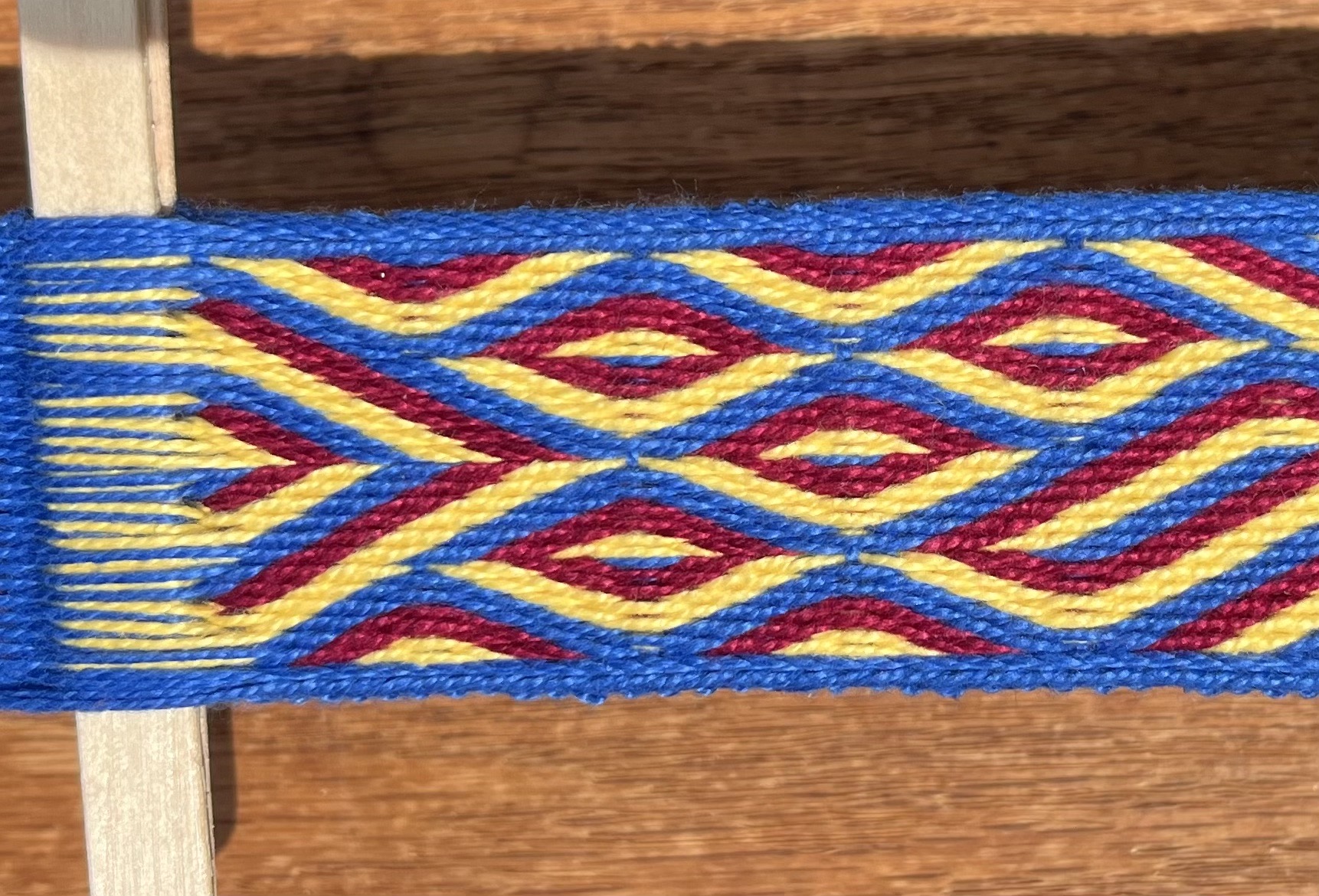[Ed.: It seems appropriate that this post has been sitting in my queue, unwritten, for as long as it has. I refuse to admit how long that is, though a clever reader could easily figure it out, nor will I admit the number of miles I’ve carried Bird by Bird, just waiting for a chance to copy out one quote. Later: Er, that would be long enough that I’m not certain just which quote I meant to copy. I guess you’ll just have to read the whole thing.]
The “artistic fallacy” is my own term for something I’ve said many times, though usually in private, and heard from others in person, online, and in print. The artistic fallacy – the idea that if only something were different, the sufferer could write/paint/create a masterpiece. Unless you’re a far better person than I am, you’ve probably suffered from this yourself, in one form or another. It could also be called the “If only” disease.
“If only my family didn’t take so much time, I could have written a novel by now.”
“If only I had a better place to work, I could be painting for a show.”
“If only work weren’t so draining…”
“If only I could get my supplies organized…”
“If only…”
Stephen King writes about this quite eloquently in On Writing, where he describes his desire for a particular large desk that would make his writing so much easier. He kept writing, though, and eventually was successful enough to install the desk of his dreams.
He never used it.
The key phrase in the above description is “kept writing”. All of us have the same number hours in the day, most of us have to work for a living, have families to tend, houses to clean. The important thing is to do it anyway, whether it is writing, knitting, painting, making music. My life isn’t going to magically change, and neither will yours, I expect. No winning lottery ticket, no hitherto-unknown rich uncle, no sudden change to a 15-hour workweek at the same salary. Everyone, from Stephen King on down, has the same kind of life, and you make of it what you will. Persistence is more important than just about anything else, I think – if you write 50 words a day, it will still be a novel when you’re done, and if you knit two rows, it will still become a sweater. More importantly, you will be the person who wrote a novel, or knit a sweater, and not one of the millions who say to themselves every day, “If only…”.
Anne Lamott writes about the other half of the artistic fallacy in Bird by Bird: Some Instructions on Writing and Life. It starts in the same way, but addresses the after, rather than the before. “If only I had published a novel/practiced the piano/finished my masterpiece, I’d be rich, and famous, and people would like me.”
Wouldn’t it be nice if were that easy?
There has to be some other reason besides dreams of success to start and stick to a project. You write because you enjoy it, or you weave because it makes you happy. If you don’t enjoy the process – seeing words on paper, or yarn become cloth, or colors come together to form the picture you see in your head – then why bother? The doing must be rewarding in and of itself, to get you past all of the “if onlies”.
Anne Lamott says it better, as does Stephen King. As I was contemplating this article, I also kept running into other people saying the same thing in their own way, including the Yarn Harlot, and in pictures, How to survive writing a graphic novel by Grady Klein.
There are things you can do, to help manage time and stuff, and I’ll be talking about some of my favorite strategies in future articles. Not that I’m a fantastic role model, but I think about this sort of thing a lot, perhaps sometimes to the detriment of actually doing it.
And sometimes I give in to the urge for that something whose possession will change my life and make me productive. This time, a bright red Lamy Safari fountain pen, and a bottle of Noodler’s black ink. How can you not love an ink called “Noodler’s”?

I have had a love-hate relationship with those $5 Schaeffer’s fountain pens for years. I love the idea of using one, and hate the reality! I finally did some research, and found an affordable fountain pen that people actually liked. I like it too – it writes very smoothly, and I haven’t yet gotten ink all over myself and my paper – but for some reason it didn’t spontaneously write a best-selling novel. Drat!






One response to “The artistic fallacy”
First, the easy part–love the pen!!! I will have to check those out…it is impossible to have too many writing utensils. (Or spindles, or beads, or …)
Re: Artistic Fallacy–“dreams of success” are probably more likely to scare us away from starting. “How can I possibly produce a masterpiece under these conditions?” (It’s too much of a mess, I’m too tired, I feel miserable, I haven’t washed the dishes…” DOING stuff (like Stephen King just keeping on writing) is what gets you there. It’s so easy to skip the little things when actually, under the conditions of normal life (mine, anyway) the little things are the easiest to accomplish. Rather than worry about some Magnificent Masterpiece, I can say, well, I made a fancy silk braid. And it is done. And I’ve done one more step for this bookbinding. Little successes to encourage yourself to continue, rather than impossible hurdles to deter yourself from starting.
One of my favorite teachers at Oregon College of Art & Craft was Bill Will. He told us that the important thing is to make stuff, a lot of stuff, even if most of it was crap. I had that proven to me in a drawing class with Michelle Ross–we had a lot of assignments of multiples. You know what? If you have to draw 30 self-portraits, you DO come up with 4 or 5 really good ones! Working on multiples frees you up from imbuing each item with undue importance–and when you’re more relaxed you are more likely to produce your best work. And the more things you make the more good things you will end up with. (I have a large assortment of, er, learning experiences. The relief of being out of school–I no longer get graded on the learning experiences.)
Another extremely important thing (also from that class) was learning how to get less entranced by the Work Of Art I’m Making–at one point, when we’d been working on one particular thing for a while, I realized I was _kneeling_ on my drawing. Wow. This particular project is still one of my favorite things ever, and also taught me how to erase–which has translated, in fiber work, to unraveling/pulling out stitches/general starting over.
Of course, being aware of this unfortunately does not make it easier, but it is possible to train new behaviors. I find that it is good to have reminders; it’s probably about time to hang up cheesy Notes of Encouragment to keep me going. I also have to add Anne Lamott to my reading list, Sarah!